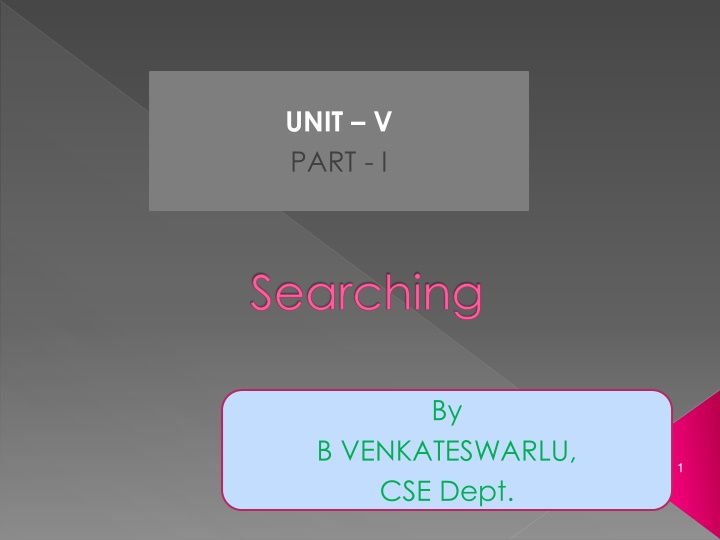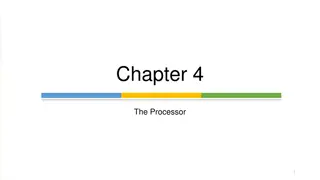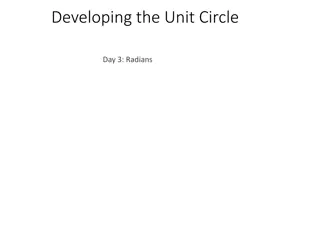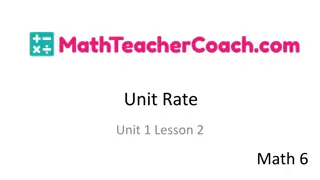
Fundamentals of Sorting and Searching in Computer Science
Explore the fundamental problems in computer science and programming related to sorting and searching algorithms. Learn about different algorithms, the concept of "better" algorithms, linear search, binary search, and average case Big O notation in arrays. Get insights into how sorting makes searching easier and the importance of choosing the right algorithm for efficient searching.
Download Presentation

Please find below an Image/Link to download the presentation.
The content on the website is provided AS IS for your information and personal use only. It may not be sold, licensed, or shared on other websites without obtaining consent from the author. If you encounter any issues during the download, it is possible that the publisher has removed the file from their server.
You are allowed to download the files provided on this website for personal or commercial use, subject to the condition that they are used lawfully. All files are the property of their respective owners.
The content on the website is provided AS IS for your information and personal use only. It may not be sold, licensed, or shared on other websites without obtaining consent from the author.
E N D
Presentation Transcript
UNIT V PART - I Searching By B VENKATESWARLU, CSE Dept. 1
Sorting and Searching Fundamental problems in computer science and programming Sorting done to make searching easier Multiple different algorithms to solve the same problem How do we know which algorithm is "better"? Look at searching first Examples will use arrays of ints to illustrate algorithms 2
Searching Given a list of data find the location of a particular value or report that value is not present linear search intuitive approach start at first item is it the one I am looking for? if not go to next item repeat until found or all items checked If items not sorted or unsortable this approach is necessary CS 307 Fundamentals of Computer Science 4 Sorting and Searching
Linear Search post: return the index of the first occurrence of target in list or -1 if target not present in list /* */ public int linearSearch(int[] list, int target) { for(int i = 0; i < list.length; i++) if( list[i] == target ) return i; return -1; } pre: list != null 5
Linear Search, Generic pre: list != null, target != null post: return the index of the first occurrence of target in list or -1 if target not present in list /* */ public int linearSearch(Object[] list, Object target) { for(int i = 0; i < list.length; i++) if( list[i] != null && list[i].equals(target) ) return i; return -1; } T(N)? Big O? Best case, worst case, average case? 6
Attendance Question 1 What is the average case Big O of linear search in an array with N items, if an item is present? A. O(N) B. O(N2) C. O(1) D. O(logN) E. O(NlogN) CS 307 Fundamentals of Computer Science 7 Sorting and Searching
Searching in a Sorted List conquer dividing your work in half with each step generally a good thing The Binary Search on List in Ascending order Start at middle of list is that the item? If not is it less than or greater than the item? less than, move to second half of list greater than, move to first half of list repeat until found or sub list size = 0 If items are sorted then we can divide and 8
Binary Search list low item Is middle item what we are looking for? If not is it more or less than the target item? (Assume lower) middle item high item list low item middle item high item and so forth 9
Binary Search in Action 0 1 2 3 4 5 6 7 8 9 10 11 12 13 14 15 2 3 5 7 11 13 17 19 23 29 31 37 41 43 47 53 public static int bsearch(int[] list, int target) { int result = -1; int low = 0; int high = list.length - 1; int mid; while( result == -1 && low <= high ) { mid = low + ((high - low) / 2); if( list[mid] == target ) result = mid; else if( list[mid] < target) low = mid + 1; else high = mid - 1; } return result; } // mid = ( low + high ) / 2; // may overflow!!! // or mid = (low + high) >>> 1; using bitwise op 10
Trace When Key == 3 Trace When Key == 30 Variables of Interest? 11
Attendance Question 2 What is the worst case Big O of binary search in an array with N items, if an item is present? A. O(N) B. O(N2) C. O(1) D. O(logN) E. O(NlogN) 12
Generic Binary Search public static int bsearch(Comparable[] list, Comparable target) { int result = -1; int low = 0; int high = list.length - 1; int mid; while( result == -1 && low <= high ) { mid = low + ((high - low) / 2); if( target.equals(list[mid]) ) result = mid; else if(target.compareTo(list[mid]) > 0) low = mid + 1; else high = mid - 1; } return result; } 13
Recursive Binary Search return bsearch(list, target, 0, list.length 1); } public static int bsearch(int[] list, int target){ public static int bsearch(int[] list, int target, if( first <= last ){ int mid = low + ((high - low) / 2); if( list[mid] == target ) return mid; else if( list[mid] > target ) return bsearch(list, target, first, mid 1); else return bsearch(list, target, mid + 1, last); } return -1; } int first, int last){ 14
Other Searching Algorithms Interpolation Search more like what people really do Indexed Searching Binary Search Trees Hash Table Searching Grover's Algorithm (Waiting for quantum computers to be built) best-first A* 15






















